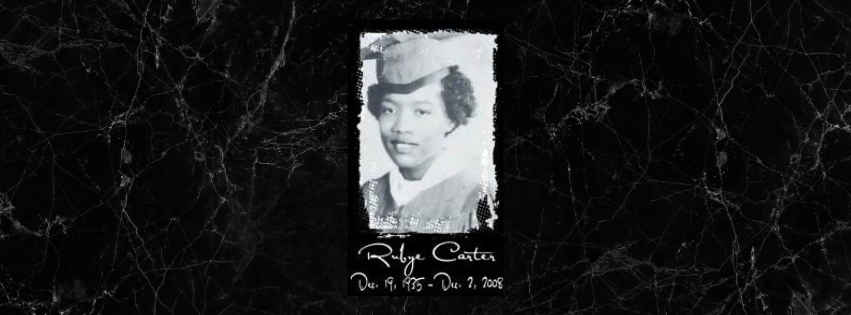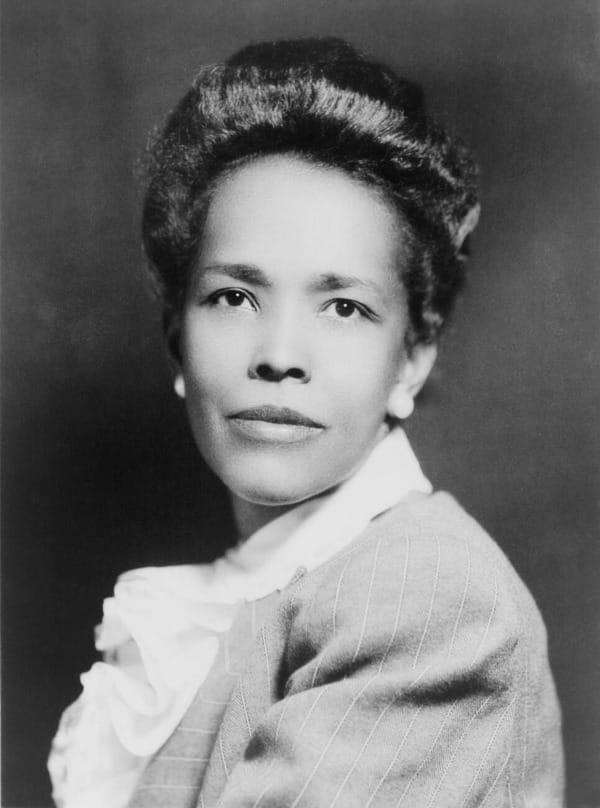From the Director’s Desk: Rubye Carter’s Lesson Plan
Learn how NMBLC Founder & Director Cathryn McGill honors her mother’s legacy of teaching with love, high standards, and a call to fight for children’s futures through consistent, community‑rooted action.

My mother, Rubye Carter, taught English for 31 years in Muskogee, Oklahoma at Muskogee High School. She raised five children of her own and poured the same fierce love and unshakeable standards into every student who walked through her classroom door.
She believed in the power of words—to heal, to inspire, to liberate—and she expected her students to treat language like it mattered. She most definitely used words to heal and inspire, but she could also get you told when you needed to get told. That was a skill she perfected being one of the first Black teachers at an all-white high school in the pseudo-South in the late 1960s.
Bootstrap Brilliance
Her job was to teach grammar, her passion to teach children how to see themselves beyond their circumstances. She understood what many of her students carried—poverty, grief, instability—and she carried a piece of it with them. If they needed a coat, she found one. If they needed a ride, she rearranged her day. If their shoes had holes, she made sure they had a new pair before the week was out. It wasn’t charity—it was commitment. A quiet, persistent demand for excellence wrapped in compassion.
Our Generation’s Civil Rights Movement
Arne Duncan, former U.S. Secretary of Education, once said: “Education is the civil rights issue of our generation. And if you care about promoting opportunity and reducing inequality, the classroom is the place to start. Great teaching is about so much more than education; it is a daily fight for social justice.”
He never met my mother, but I believe they would’ve understood each other. She didn’t call it social justice. She just did the work.

Community Based Activism
When I think about how change really happens, I go back to Ella Jo Baker—another woman who knew how to build power from the ground up. She trusted communities to lead themselves. Her legacy reminds us that the fight for justice is a steady, sustained effort—no fanfare needed. It’s knowing the names, the needs, the stories. It’s listening. Then acting.
At The Risk of Repeating Myself
And that brings me here—to this moment. To our children still waiting for someone to believe in them deeply enough to fight for their future. Not with grand gestures, but with consistency. With presence.
I’ve spent years asking people to give their time, their talent, and yes, their treasure. And if I had a dollar for every time I made that ask, I could’ve retired twice by now. Imma’ be doing that soon, but right now, I’m addressing what we owe each other.
So I’m asking again.
Volunteer.
Be the one who shows up.
Read to a child.
Support a teacher.
Join a school board.
Bring snacks, bring books, bring love. Just bring yourself.
This freedom liberation civil rights journey doesn’t start in courtrooms or Congress. It starts when a child sings their ABCs with so much joy they can’t stop. That sound? That’s hope. That’s possibility. That’s the future calling us forward.
Answer it.
